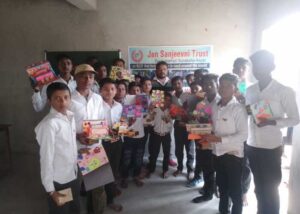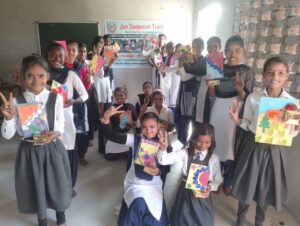




Education builds a better life, allowing children to shape their own futures. It is a journey from darkness to light. Without education, people are trapped in intergenerational cycles of poverty and backwardness. Despite seven decades of independence, India still struggles to achieve a literacy rate above 90 percent.
Providing quality education to all children in India should be a top priority for both state and central governments. To this end, various government branches often support charitable organizations to bring more children into the fold of educational initiatives.
NGOs play a crucial role in this endeavor, working tirelessly to provide quality education to the most marginalized and deprived children in India. Through programs in the most remote and underserved areas, NGOs ensure that the benefits of the Right to Education Act reach the most disadvantaged children.
The goal is to ensure that all children, regardless of their background, can attend school, play, interact, and learn with their peers, securing a life of dignity and contributing to economic development. Support an NGO today and help spread education through the following measures:
Spreading Awareness
The most important aspect of promoting education is raising awareness among parents and communities about the necessity of education for every child. The message that quality education is a fundamental right for all children, regardless of their social or economic background, needs to be widespread. NGOs connect with the most disadvantaged communities, where children often work in fields or factories or drop out of school, educating parents and elders on the importance of sending children to school.
Making Learning Enjoyable
To improve the reach of quality education among the most deprived children, it is essential to make learning a pleasant experience. Child education NGOs train teachers to use child-friendly and interactive teaching methods. They establish libraries and infrastructure, conduct computer and English classes, and promote extracurricular activities and sports.
Community Engagement
NGOs and children’s charities actively engage with local communities to form Children Groups (CGs) and School Management Committees (SMCs), working with them to ensure they take responsibility for the development of children in their area. Massive enrollment drives are conducted to identify and enroll out-of-school and vulnerable children into formal schools in age-appropriate classes.
Group Learning
Group learning has proven to be an effective methodology, helping children learn better and faster while promoting healthy competition. In classrooms, children are encouraged to engage in group learning activities. NGOs run learning centers for street children and child laborers from socially excluded communities, providing learning support and after-school assistance to prepare these children for formal schooling.
Urban Slum Education
Cities like Kolkata and Delhi are home to large numbers of urban poor living in slums or slum-like areas. Children in these communities are often involved in child labor. NGOs work to provide these children with education and opportunities to break the cycle of poverty.
Conclusion
The role of NGOs in supporting orphaned children and spreading education to every corner of a vast country like India is undeniable. Alongside the existing government apparatus, NGOs can ensure that no child is left behind when it comes to receiving an education.